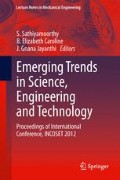Abstract
The Methanol-gasoline blend is utilized in this work to measure the formaldehyde (HCHO) coming out from the engine exhaust using the alcohol/gasoline blends by the following method and to Characterize the aldehyde emission, study the performance characteristics, CO, HC, emission Levels in the Various blends. Formaldehyde can be sampled with the use of a standard miniature glass fiber filter coated with 3-methyl-2-benzothiazolinone hydrazone hydrochloride (MBTH). The absorption measurement is done immediately by using UV–visible spectrophotometer. Upon increasing the methanol blend over petrol the readings were identified. On increasing methanol blend the PPM has been found to decrease at 100 % methanol at 100 % load, 3.5 PPM has been noticed.
Access this chapter
Tax calculation will be finalised at checkout
Purchases are for personal use only
References
Chan WH, Shuang S and MMF Choi (2001) The analyst paper 126(5):720–723
Lodge JP (1989) Determination of formaldehyde content of the atmosphere (MBTH method). Lewis Publishers
Heywood JB (1998) Internal combustion engine fundamentals. McGraw-Hill, NewYork
Degobert P (1995) Automobiles and pollution. SAE/Editions Technip, Paris
Roux and JH, Loubser NH (1986) Carburetor corrosion: the effect of alcohol–petrol blends. In: Proceedings of the VII International symposium on alcohol fuels technology, Paris
Cortney RL, Newhall HK (1984) The properties and performance of modern automobiles fuels. SAE 841210
Mathur ML, Sharma RP (2005) Internal combustion engines. Dhanpat Rai Publications, New Delhi pp 214–249
Davis GW, Heil ET (2000) The development and performance of a high blend ethanol fuelled vehicle. SAE 2000-01-1602
Bresenham D, Reisel J (1999) The effect of high ethanol blends on emissions from small utility engines. JSAE 9938100
Bardon MF, Rao VK Battista V (1995) Flammability tests of alcohol/gasoline vapours. SAE 950401
Author information
Authors and Affiliations
Corresponding author
Editor information
Editors and Affiliations
Rights and permissions
Copyright information
© 2012 Springer India
About this paper
Cite this paper
Elamaran, T., Shankar Ganesh, N., Vinoth Raj, K. (2012). Implementation of Methanol as Fuel in SI Engine for the Measurement of Formaldehyde Emission. In: Sathiyamoorthy, S., Caroline, B., Jayanthi, J. (eds) Emerging Trends in Science, Engineering and Technology. Lecture Notes in Mechanical Engineering. Springer, India. https://doi.org/10.1007/978-81-322-1007-8_10
Download citation
DOI: https://doi.org/10.1007/978-81-322-1007-8_10
Published:
Publisher Name: Springer, India
Print ISBN: 978-81-322-1006-1
Online ISBN: 978-81-322-1007-8
eBook Packages: EngineeringEngineering (R0)

